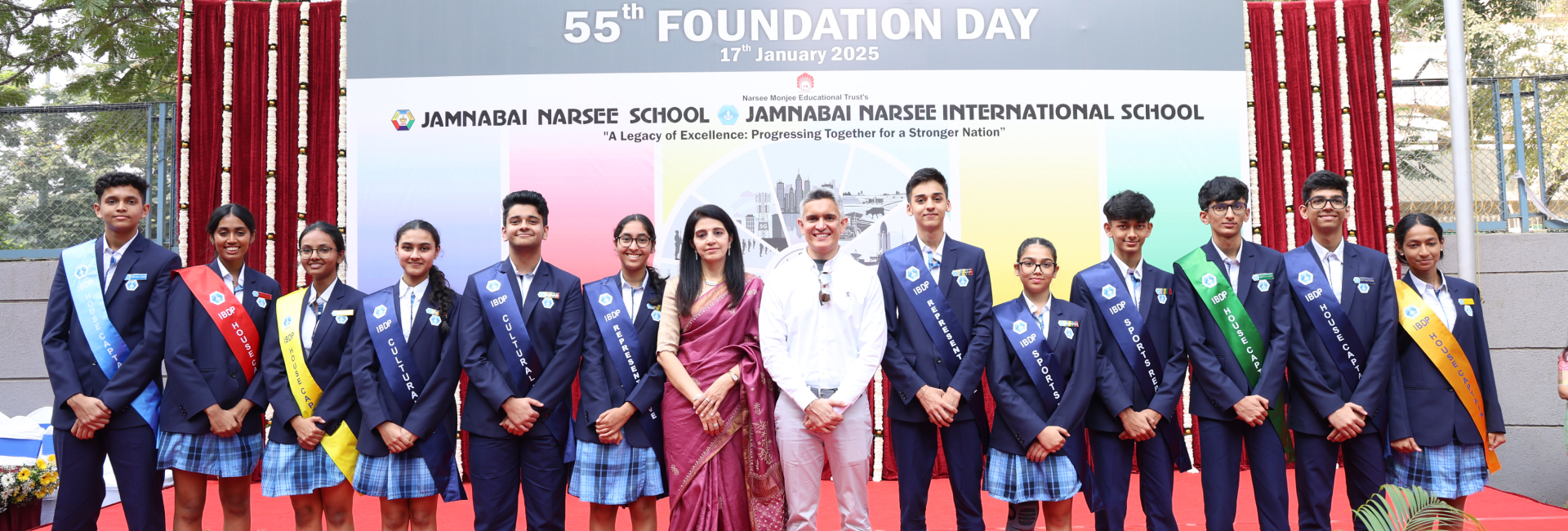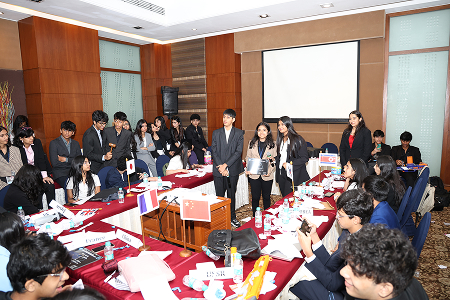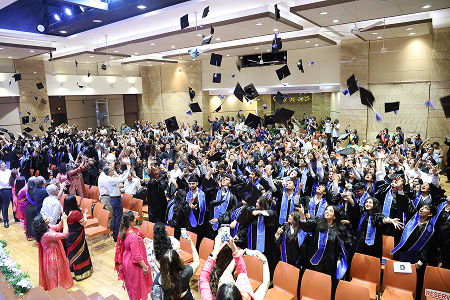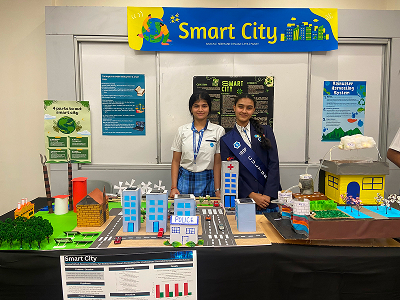


The International Baccalaureate Diploma Programme is a rigorous pre-university course of studies, leading to examinations that meet the needs of post - secondary school students. Designed as a comprehensive two-year curriculum that allows its graduates to fulfill requirements of various national education systems.
The curriculum is displayed in the shape of a wheel with six academic areas of study surrounding the three core elements, Theory of Knowledge (TOK), Creativity, Activity, Service (CAS), and Extended Essay.
At JNIS students of IBDP choose one subject from each of five groups (1 to 5), ensuring breadth of knowledge and understanding in studies in language and literature, language acquisition, individuals and societies, sciences, and mathematics. A student may choose either visual arts/theatre studies from group 6 or a second subject from groups 1 to 5. These subjects may be taken at Higher Level or Standard Level. At least three subjects need to be taken at the higher level (240 teaching hours), while the other three are taken at the standard level (150 teaching hours).
Successful Diploma Programme candidates meet three core requirements in addition to the six subjects. The interdisciplinary Theory of Knowledge course is designed to develop a coherent approach to learning which transcends and unifies the academic areas. It also encourages appreciation of other perspectives. The Extended Essay of about 4000 words offers the opportunity to investigate a topic of special interest. It acquaints students with independent research and writing skills. The Creative, Activity, Service (CAS) requirements encourage students to be involved in creativity pursuits, physical activities, and service projects in the local, national and global context.
Our IBDP Grade 11 students get involved in the Sarvavikas Adharaha Yati Atmanirbharatha Moolam [SVAYAM] project. This outreach programme enables students to give back to the community by empowering Lakhania village in Kutch, Gujarat to work towards self-sufficiency. This is accomplished through regular guidance in terms of education, health, hygiene, ecological endeavours, and infrastructural developments.


